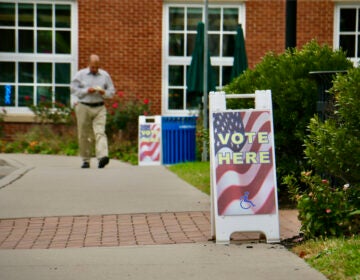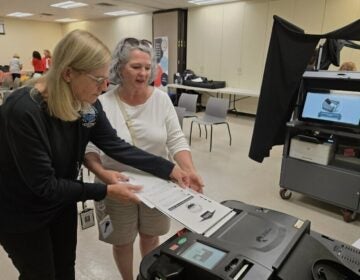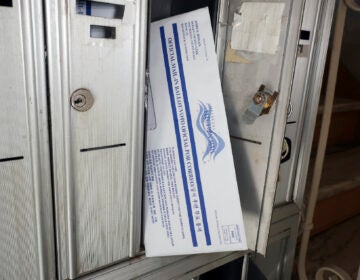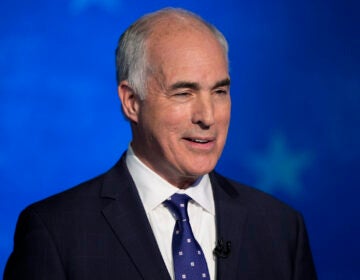Want to be a poll worker in N.J.? Here’s everything you need to know, from pay to required training
Here are the steps to become a poll worker in New Jersey — and how to earn more than the base salary.
Listen 1:00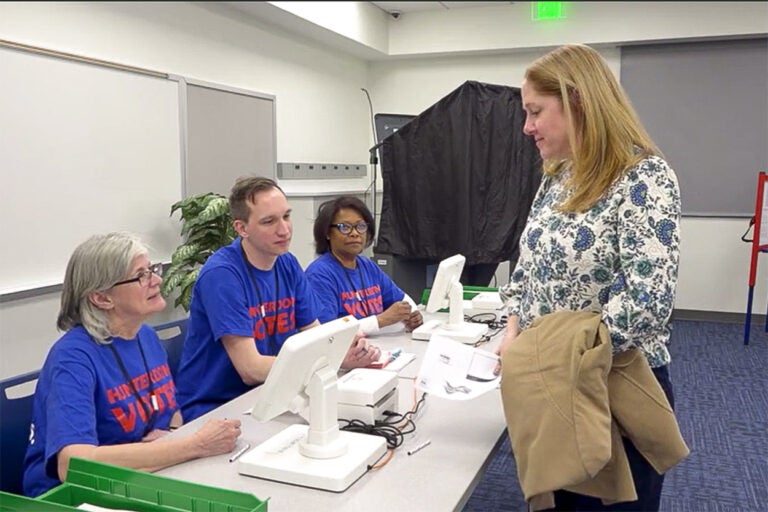
Poll workers go through training to learn how to help voters on Election Day. (Courtesy of the New Jersey Association of Election Officials)
N.J. election 2024: Dates to watch
- Deadline to register to vote: Tuesday, Oct. 15
- Deadline to request mail ballot
- By mail: Tuesday, Oct. 29
- In person: Monday, Nov. 4
- Deadline to return mail ballot: Postmarked by 8 p.m. Tuesday, Nov. 5
- Early voting: Saturday, Oct. 26 – Sunday, Nov. 3
- Election Day: Tuesday, Nov. 5
What questions do you have about the 2024 elections? What major issues do you want candidates to address? Let us know.
If you’re interested in becoming a poll worker in New Jersey for the November election, you can still sign up, but you must act soon.
Who can become a poll worker?
To qualify to be a poll worker in the Garden State, you must be a U.S. citizen and a registered voter in the county where you live. However, Beth Thompson, the executive vice president of the New Jersey Association of Election Officials and the Hunterdon County Board of Elections administrator, said, “Some counties will work with student poll workers if we are short.”
You cannot be a candidate in this November’s election to be eligible to serve as a poll worker.
How do you apply to become a poll worker?
The first step is to contact your local Board of Elections in the county where you live and request a poll worker application.
Once the application is filled out and returned, you will pick a training class to attend, or you will be assigned one, depending on the needs of the specific county.
What’s the deadline to apply?
Thompson said most counties must receive poll worker applications by Oct. 19, but this varies from county to county.
What kind of training do you get?
First-time poll workers must attend one in-person training class, which takes about two hours. After that, follow-up training is required every two years, but some counties have started offering online training classes for returning poll workers.
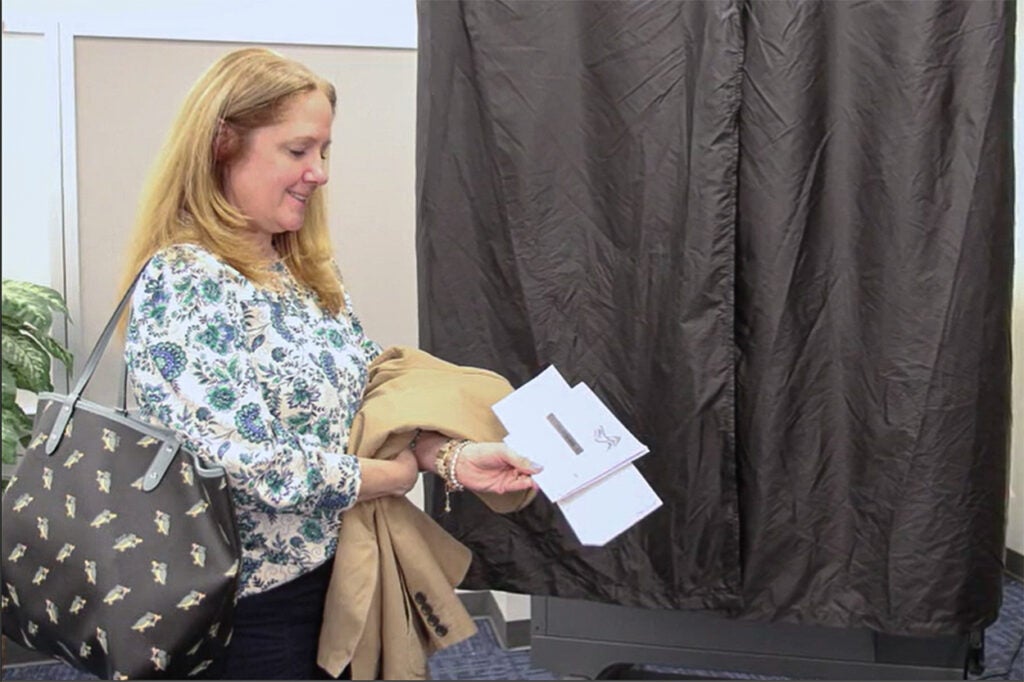
New Jersey residents who attend poll worker classes learn about policies and procedures, how to check in voters, how to operate the voting machines, how to pack up ballots once the polls close, and other information they may need on Election Day.
Is being a poll worker easy?
Thompson said every county in the state uses updated voting machines, so being a poll worker requires specific training.
“Their roles have become a little bit more advanced, where now we’re dealing with technology, instead of paper poll books we have electronic poll books,” she said.
She said on Election Day, poll workers are required “to show up 45 minutes before the polls open, which is 5:15 in the morning, and then they are done when the polls close at 8 p.m., and then all of the equipment is packed up.”
How much do you earn as a poll worker?
New Jersey poll workers earn $300, which equals $21.43 an hour. Gov. Phil Murphy signed a bill in March of 2022 increasing the pay from $200 to $300, to help attract more poll workers.
Thompson said, “We also are allowed to pay you for transporting the materials back to the Board of Elections, or picking up the voting machine keys in the morning, so for each district that you’ve got it’s $12.50 to pick up keys from your municipal clerk, or to deliver all the materials back at the end of the night, that’s also an additional $12.50, so someone could earn more than $300.”
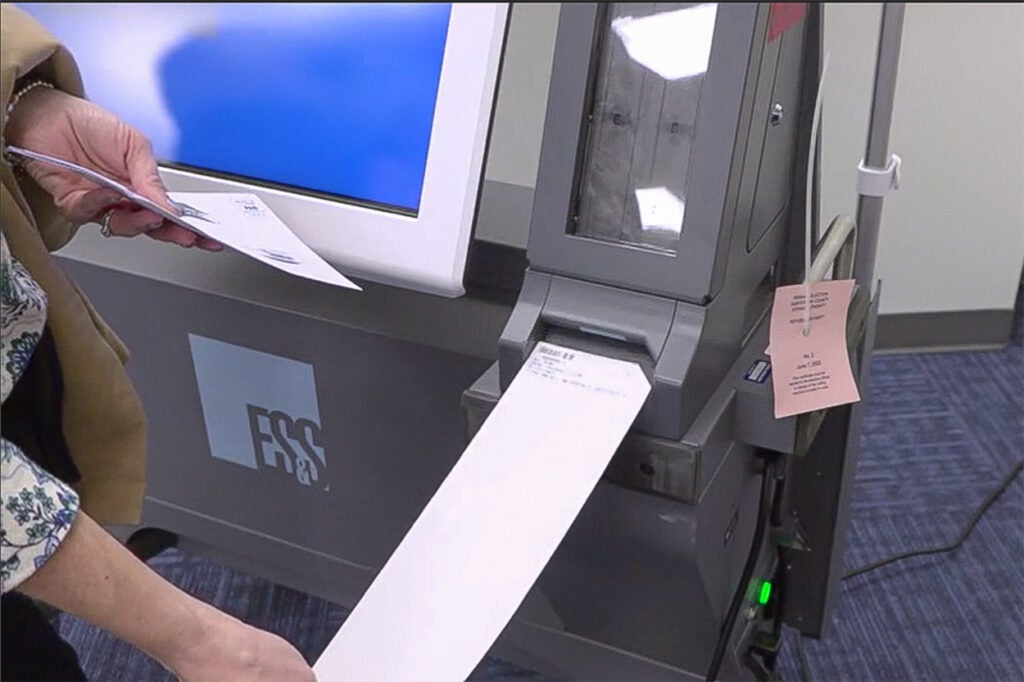
How are poll workers recruited?
Besides word of mouth, Thompson said, “We do this through social media, through advertising, there’s portals on the State Division of Elections website.”
She said most New Jersey counties are still accepting applications. “Normally right before an election we’re short, sometimes 20% of what our needs are, but usually we get more applications than we can fill in a presidential year. People want to get involved.”
How many poll workers are in each polling location?
New Jersey law stipulates the minimum number of poll workers in a voting location on Election Day needs to be four, but Thompson said, “There isn’t one election, except for a presidential election where we’re compliant with that, because we’re short (workers) every single, solitary year.”
What happens if there’s a problem?
Thompson said county Boards of Election have supervising poll workers, sometimes called runners or floor managers, who will respond to different voting locations within a district if any problem arises.
“These are the folks who are the one point of contact if something goes wrong,” said Thompson. “These are the ones that we rely on to maybe fix the paper jam or help the voter call for assistance if there’s an issue with their voter registration.”
She said whatever issues may arise, “Don’t leave your polling location unsatisfied, or without calling your Board of Elections. If you’re denied the right to help, we want to help you.”
Why should you consider being a poll worker?
She said being a poll worker is an important job.
“Having the citizens of our state exercise their right to vote is probably one of the most important things that you can do, and our poll workers, we wouldn’t have successful elections without them,” she said.
What happens if your county doesn’t need poll workers for the November election?
Thompson said even if all of the necessary positions are filled, “We have elections every year, in June and November, and we’re always looking for poll workers, so we’ll keep your application on file and then ask for you next year for the gubernatorial primary in 2025.”
She added, “Once people do it they really do enjoy it. It is kind of a fun day where people get to see people.”

Get daily updates from WHYY News!
WHYY is your source for fact-based, in-depth journalism and information. As a nonprofit organization, we rely on financial support from readers like you. Please give today.



